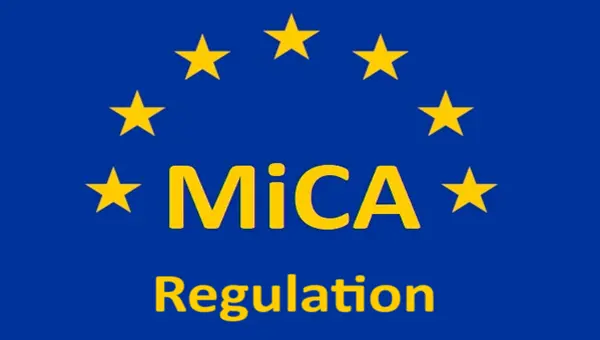

A New Regulatory Framework: What is MiCA Regulation?
MiCA, or Markets in Crypto-Assets, is a regulatory framework proposed by the European Commission to establish a unified legal framework for crypto-assets within the European Union. The regulation which has already taken effect covers a broad range of crypto-assets, including cryptocurrencies, stablecoins, and utility tokens.
It aims to create a clear and consistent regulatory environment for issuers, service providers, and investors.
Need for MiCA
Before MiCA, crypto-assets in the EU faced inconsistent regulations, creating legal uncertainty and compliance challenges for market participants. The sector’s volatility and speculative nature raised concerns about market manipulation, fraud, and financial instability. According to IMARC Group, the global cryptocurrency market was valued at $6.78 billion in 2024 and is projected to grow at a 14.19% CAGR, reaching $15.03 billion by 2030. With such numbers on the table, the lack of oversight was a potential enabler of illicit activities, including money laundering and terrorism financing. MiCA introduces a unified regulatory framework to enhance transparency, protect consumers, and strengthen market integrity.
The regulation’s primary objectives include:
- Protecting consumers from fraudulent schemes and financial risks.
- Preventing market manipulation, money laundering, and illicit activities.
- Creating a legally recognized and structured crypto ecosystem.
MiCA’s Scope on Crypto Gambling in Europe
The European online gambling industry, valued at €131 billion in 2023, is directly affected by MiCA’s provisions. A Chainalysis report reveals that Europe accounts for 30% of global crypto transactions, with estimations indicating at least 10% of online gamblers use digital currencies. MiCA’s enforcement brings significant changes to the sector.
Mandatory Licensing: A New Requirement for Crypto Gambling Platforms
Under MiCA, any entity offering crypto-asset services within the EU must obtain authorization as a Crypto-Asset Service Provider (CASP). This requirement extends to crypto gambling platforms, which now need to secure a CASP license to operate legally. The licensing process mandates strict adherence to financial transparency and governance standards. Platforms failing to comply face substantial fines, and potential cessation of operations. This move aims to ensure that only reputable and compliant operators participate in the market, thereby enhancing consumer trust.
Enhanced KYC and AML Measures: Reducing Anonymity in Crypto Gambling
MiCA enforces rigorous Know Your Customer (KYC) and Anti-Money Laundering (AML) protocols. Crypto gambling platforms are now obligated to verify the identities of their users before facilitating deposits or withdrawals. Additionally, they must maintain transaction records for a minimum of five years for regulatory scrutiny. While these measures are aimedn at mitigating risks associated with illicit activities, they significantly diminish the anonymity that previously characterized crypto gambling, aligning the sector with broader financial industry standards.

Stablecoin Regulations: Ensuring Stability and Compliance
Stablecoins, favored in crypto gambling for their price stability, are subject to stringent regulations under MiCA. Issuers are required to maintain a 1:1 reserve ratio to guarantee full redemption capabilities. This stipulation impacts gambling platforms that rely on stablecoins for transactions. For instance, prior to MiCA’s enforcement, major exchanges like Coinbase delisted several stablecoins in Europe, compelling gambling platforms to reassess and modify their accepted payment methods to remain compliant.
Transparency and Consumer Protection: Building Trust in the Market
MiCA mandates that crypto gambling platforms disclose comprehensive information about the assets they accept, associated risks, and their operational structures. This includes the segregation of user funds from operational accounts to prevent mismanagement, the implementation of deposit limits, and the provision of responsible gambling tools to address potential addiction issues. Non-compliance can result in severe penalties, including fines up to €5 million or 10% of annual revenue – an indicator of the EU’s commitment to consumer protection.
Impact Assessment: The Market’s Winners and Casualties
Winners:
- Consumers: Benefit from increased security, fairness, and responsible gambling features including mandatory deposit and withdrawal limits. This will lead to a safer gambling environment.
- Regulated Platforms: Licensed gambling platfroms within the EU are likely to experience a surge in user trust and engagement due to adherence to these strict regulations.
Losers:
- Unlicensed Operators: Face the dilemma of obtaining costly CASP licenses or ceasing operations. This will lead to a potential decline in unregulated platforms.
- Non-Compliant Stablecoins: Lose access to the European market, and affect both players and platforms dependent on these assets.
- Smaller Crypto Casinos: Might struggle with the financial burden of meeting stringent regulatory requirements, potentially leading to market consolidation.
Future Trends: Expectations Post-MiCA Landscape
As MiCA’s provisions take hold, several trends will be emerging within the crypto gambling industry:
- Strict Enforcement Actions: Regulatory bodies will actively pursue non-compliant platforms.
- Regulatory Influence Beyond the EU: Other jurisdictions are observing MiCA’s implementation closely. The UK, for instance, is developing its own crypto regulatory framework, and the trend might spread worldwide.
- Emergence of New Decentralized Gambling Models: The degree of decentralization required to remain outside MiCA’s scope remains a topic of discussion among regulators and industry participants. Soon, blockchain-based gambling platforms will adjust their features to comply with MiCAs requirements of transparency.
He has worked with several companies in the past including Economy Watch, and Milkroad. Finds writing for BitEdge highly satisfying as he gets an opportunity to share his knowledge with a broad community of gamblers.
Nationality
Kenyan
Lives In
Cape Town
University
Kenyatta University and USIU
Degree
Economics, Finance and Journalism


Facts Checked by Josip Putarek

 Fact checked by
Fact checked by 
 eabungana@gmail.com
eabungana@gmail.com 